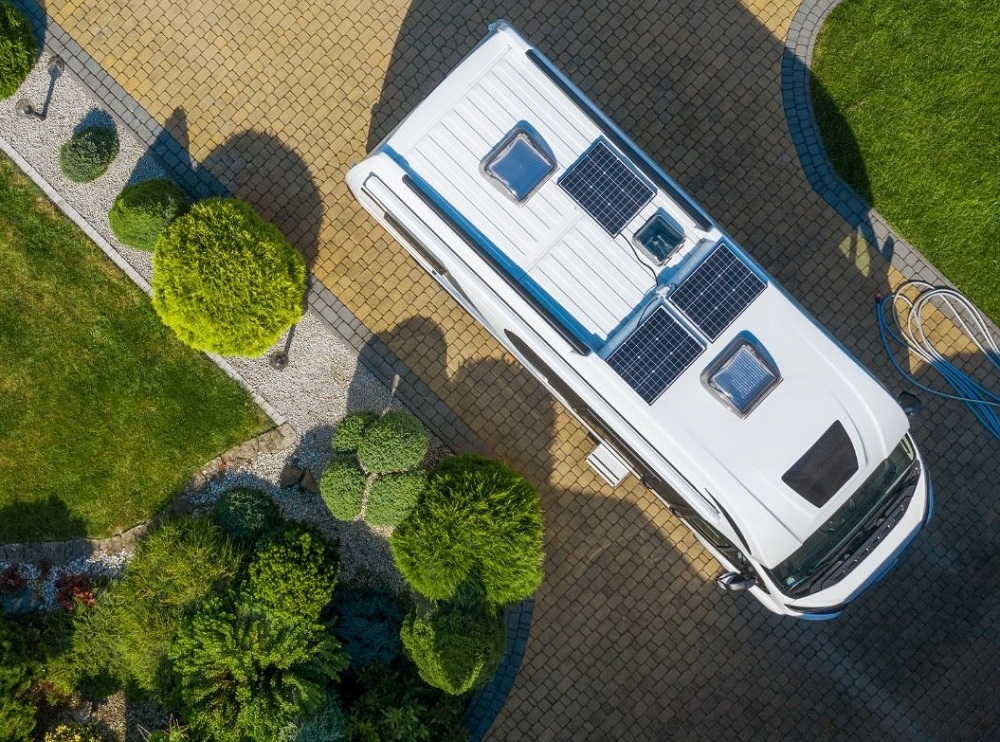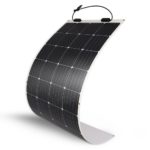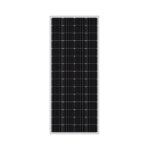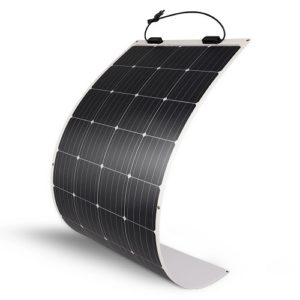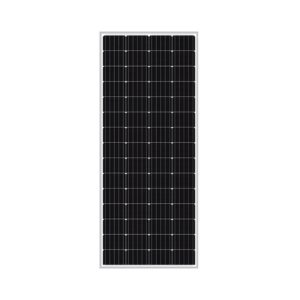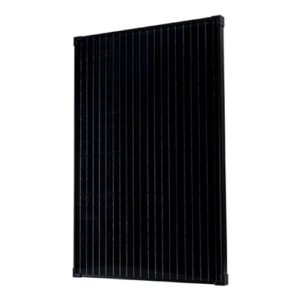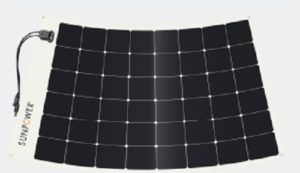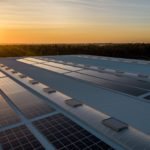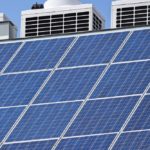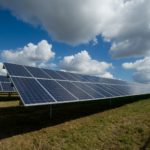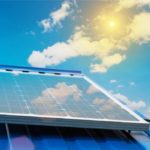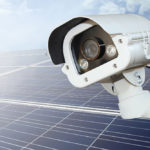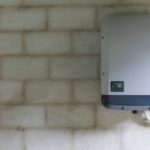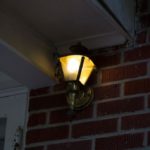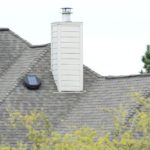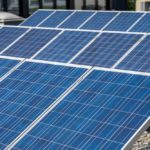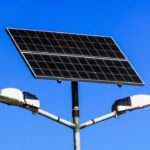It can take a while to find the right van conversion for you. The right size, the right luxuries, the right mattress.
Once you are out on the road there is that glorious sense of freedom. Traveling where you want without a dependency on the grid. You still need a power source and those generators can soon guzzle up fuel.
Being off-grid should not be that dirty. Not only do you have to shell out for replacement fuel, using a gasoline or diesel-powered generator simply seems wrong.
The generator also comes with its own hazards, its own smell, and its own emissions. You may even spend days getting to the one national park on your bucket list, only to find the generator is not allowed. What an absolute shame.
With your concern for the environment, surely there is a more pleasant power source. For you and the planet. One that is universally accepted and that you will be commended for using.
Thankfully, there are solar panels that are ideal for your van conversion. Read our guide to find the solar system for you and keep those batteries charged.
OUR TOP PICK
Renogy 175W Flexible Solar Panel
EDITORS CHOICE
Newpowa 200W Monocrystalline 12V Solar Panel
BEST VALUE
ACOPOWER 120W Portable Solar Panel
OUR TOP PICK
Renogy 175W Flexible Solar Panel
The best flexible solar panels not only provide great power output but are also lightweight and wafer-thin. One such product we really liked in our testing was the Renogy 175W Flexible Solar Panel.
Not just because it weighed a mere 6.2 pounds, or that it was less than 5% as thick as most solar panels. These are incredibly flexible panels that can hit a 248-degree arc which is ideal for bending around uneven surfaces on your van conversion.
That arc is one such example of the advanced solar cell technology that is out there. Another is an ETFE coating which is fluorine-based plastic that is brilliant for solar panels.
A lot of solar panels use a PTE coating, with ETFE you can expect a high corrosion resistance and durability over a big temperature range. Expect a sizable power output, whatever the temperature outside.
Pros
- ETFE Coating – Well made solar panels that last longer than lackluster panels that use a PTE coating
- Ultra-Lightweight – These solar panels only weigh 6.2 pounds which is considerably less than their counterparts
- Very Flexible – Can hit a 248-degree arc which is very impressive flexibility
Cons
- Short Lifespan – These flexible solar panels can last less than three years in hot climates though should last between five and ten years in milder ones.
EDITORS CHOICE
Newpowa 200W Monocrystalline 12V Solar Panel
Rigid solar panels are the most typical solar panels available so there is a lot of choice. You really should look out for durability and performance.
You get that with the Newpowa 200W Monocrystalline 12V Solar Panel. Enjoy how weather-proof it is with a heavy-duty anodized frame, that is real durability from a suitably rugged design. The pascal (pa) measures are all you need to know.
For withstanding high winds there is 2400Pa and for a snow load, there are 5400Pa. Even for a bit of rain, the panel and junction box are well protected.
You can rely on the solar cell performance too with multi-layered sheet laminations. Not only is this a solidly rigid solar panel but you should be assured of a long-lasting service life.
There is versatility too in the positioning. You could have it placed on the side of your van conversation or the roof, either will deliver a worthwhile power output which we found in our testing.
Pros
- Weather-Proof – A heavy-duty anodized frame gives these rigid solar panels a rugged design for durability
- Multi-Layered Sheet Laminations – For enhanced solar cell performance and a reliable long-lasting service life
- Versatile Positioning – The rigid solar panel can be mounted on a wall or flat surface
Cons
- Large Size – A little longer and heavier than some other models
BEST VALUE
ACOPOWER 120W Portable Solar Panel
When you are traveling far from home, it is nice to have something you can depend on. A trusted travel mug and a backpack, add a portable solar panel to the list.
The ACOPOWER 120W Portable Solar Panel is ideal for those new to using solar power. You can even take the charging with you by attaching the charger’s bungee loops to your backpack.
At just 8.4 pounds, this is a truly portable solar panel that can be folded into a laptop-esque suitcase.
Aside from the easy portability, the standout features come from how efficient it is. An enhanced power output from monocrystalline panels that are up to 25% better at energy conversion.
Then that compatibility which means charging all your devices does not come with a worry about overloading, a feature we liked in our testing of this product.
That comes from a built-in smart IC chip that will recognize your device to then ramp up the charging speed.
Pros
- Monocrystalline Panels – Up to 25% better conversion efficiency
- Smart Charging Technology – A built-in smart IC chip recognizes your device then maximizes its charging speed without danger of overloading
- Connector Compatibility – Should charge up tablets, smartphones, GPS devices, and digital cameras easily
- Very Portable – Can be folded to just 22.05 by 17.32 by 0.79 inches
Cons
- Not Waterproof – Be careful to check the weather forecast for rain
RUNNER UP
nrgGo 100 Watt Monocrystalline Solar Panel
For a fixed solar panel that really does deliver for the space it takes up, consider the nrgGo 100 Watt Monocrystalline Solar Panel. Just consider those dimensions; 40 by 26.8 by 1.5 inches.
Then consider a conversion efficiency rate between 15 and 20%. That largely comes from a classic black design that will provide a great power output while still withstanding the elements which we liked in our testing.
These solar panels are great for a group of travelers. With MC4 connectors you chain up multiple panels to add power as you are on the move.
For rigid solar panels, these are just as easy to install as they are to connect too. For even more peace of mind, each solar panel comes with a one-year assurance. You can even extend the assurance up to two years absolutely free.
Pros
- Easy Installation – These rigid solar panels are straightforward to install and connect
- Classic Black Design – Looks formidable and delivers just as formidable a power output
- MC4 Connectors – For even more optimal charging, chain a few solar panels together easily with MC4 connectors
Cons
- Temperamental To Weather – The solar panel can be disrupted by temperamental weather conditions
RUNNER UP
SunPower 170W Flexible Solar Panel
If you really want performance for a big outlay then take a look at the SunPower 170W High Efficiency Flexible Solar Panel. A mammoth 30% energy conversion rate should be more than enough to justify the investment.
The tough design should also feature highly in your decision-making, as it did in our testing. These are the only solar panels that are built on a solid copper foundation.
With such an intelligent, unique build, you can be assured that the flexible solar panels will be resistant to corrosion and cracking from high temperatures.
These are flexible solar panels that are specially designed for bigger off-grid power systems and you can tell why. The high power output, the top-grade construction, and the lightweight polymer materials make them rewarding to bring on your travels.
Pros
- Tough Design – Built on a solid copper foundation, these flexible solar panels are resistant to cracking and corrosion
- Low-Cost Installation – This flexible solar panel can be installed using adhesives or the stainless steel grommets in the solar panel itself
- High Power Output – A huge 30% energy conversion rate is one of the best in the market
Cons
- Expensive Pricetag – This tots up at a sizable investment yet you would expect that for the performance
Best Solar Panels For Van Conversion Buying Guide
Solar panels can be an ideal way to generate electricity for a van conversion. It may seem like a big outlay at first yet over time and on your travels, solar panels prove to be an investment that is well worth it.
No more relying on dirty, noisy generators or having to pay for an electric hook-up at campsites. You should also be assured that no national park will turn you away based on your power source.
Solar panels are an effective environmentally-friendly, low-maintenance way of generating and conserving your own clean energy. They also come in various types and it is always great practice to find out which is best for your van conversion.
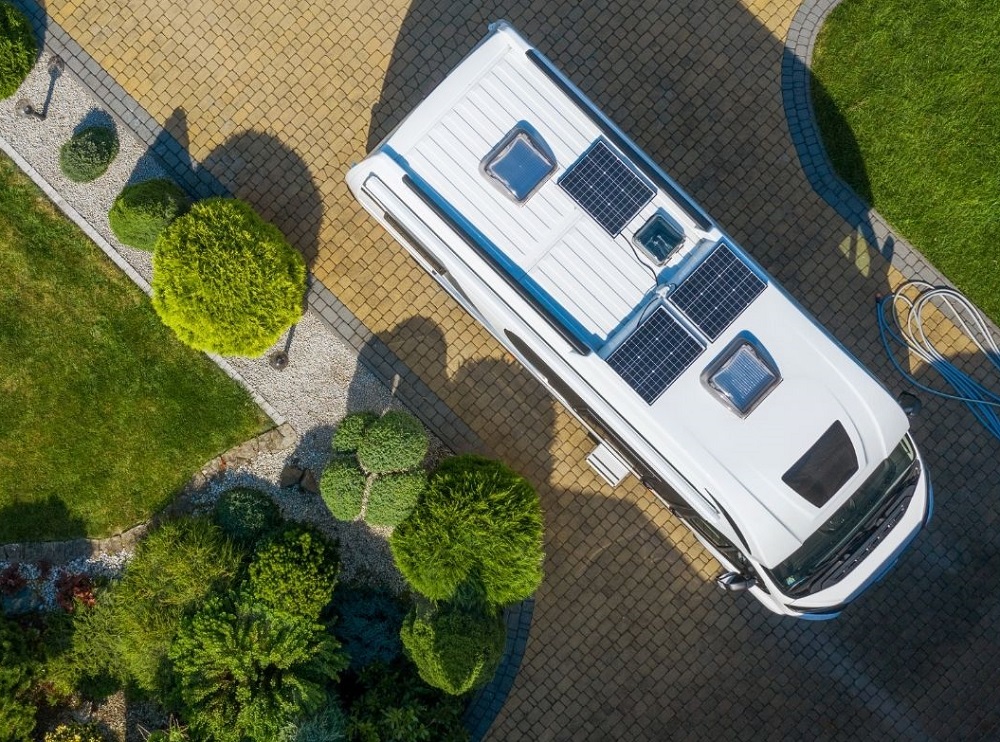
Flexible Solar Panels
For their practicality and their weight, flexible solar panels are a worthwhile investment. Such flexibility comes from their thin design and at less than an inch thick they can usually bend around the surfaces on your van conversion.
That thin design also means that they weigh less and do not need to be mounted. Flexible solar panels are also a good option if you have limited space on your roof.
Fixed/Rigid Solar Panels
As you may expect, these are solar panels that are fixed to your van conversion. They can be permanently installed on the roof or even the side for constant exposure to sunlight when stationary or whilst traveling.
If you have the roof space to accommodate one, then a fixed solar panel is simple enough to install and takes little maintenance to keep. Rigid solar panels are a popular option simply because you can fix them in place then not have to worry about them.
They are also highly durable and come with their own protection. An aluminum frame surrounds the rigid solar panel which is also mounted under temperate glass. This protection is quite straightforward and is developed to cope with the weather.
Compared to flexible solar panels, the reliability of rigid solar panels also comes at a cheaper price per watt.
Portable Solar Panels
Solar panels can be portable too. They can be folded into suitcases and carried around but generally come as individual units. Portable solar panels can be really easy to set up then move into position to collect all that lovely sunlight.
Should you suffer from limited roof space on your van conversion then a portable solar panel is a good option. Ideal to roll out when you get to your campsite.
Watt Amount
Finding out which watt amount is best for your van conversion can mean narrowing the market for which solar panels you eventually go for. Solar panels come in a variety of wattages; from 50W, 100W to 200W of power output.
Bear in mind that the weather can play a big role in how much energy you actually generate from your solar panels. Cloud cover or mere indirect sunlight may not be sufficient for every appliance you want to use.
Obviously, the amount of watts you require should depend on what you are using them for. Ideally, the solar panels you install will meet your energy needs just right.
Not enough panels and you will not be able to cover the energy to power the appliances in your van conversion. Too many, or too big a solar panel, and that investment may seem more sizable than you really want it to be.
You may want to check the daily power consumption amount or the watt-hours known as Wh. For instance, if you have several high-wattage light bulbs or a TV set, you may need more watts to cover the power output. Be wary that the figure of watts relates to test conditions under constant sunlight.
Weight
You could be surprised by how much solar panels can vary in weight, especially when it comes to installation. Using lighter materials, some solar panels can weigh as little as just four pounds, others can be much heavier at ten times that amount.
One factor that may make your decision easier is how much weight the roof on your van conversion can support. Installing solar panels should not be difficult yet the weight could play a big role in which solar panel you go for.
Size
If you have a smaller van conversion, the chances are you will need a smaller solar panel. That just makes sense. You are likely to have smaller appliances and a reduced space in which to fit solar panels.
If you are considering which type of solar panels to go with, perhaps opt for flexible solar panels that you know can wrap around objects on your van conversion. Solar panel efficiency has a lot to do with size so find one that fits.
Extras
Should you be looking to sweeten the deal for your solar panels then look out for a few extras. These could include solar generators which are a nice bonus to get. Some extras simply come with the type of solar panel.
For instance, a fixed solar panel would need some mounting hardware and a charge controller. Those usually come as standard. You may want a tilting mount too so that your solar panel can directly face the sun for more solar capacity.
However, a portable solar panel should come with charge controllers as well as clips and connecting cords. Some manufacturers will include those items with the solar panel itself, others will expect you to buy them separately.
Frequently Asked Questions
How do you calculate the amount of electricity you need to cover in your van conversion?
There is actually a really straightforward method of working this out, though you may need a pen and paper.
- List the appliances and devices in your van conversion
- Next to each item, note down how many amps they use daily
- Consider then estimate how many hours you use the device on a bad weather day. For instance, you may watch more TV if you decide to stay in your van conversion
- Multiply the number of amps by hours you use the device to work out how many amps you will need every day
- Tot up each of those daily amounts for your grand total
- Add a few more amps, just in case
Now you have worked out how many amps you need, you need to match this up to the watts your solar panels can provide.
Use Ohm’s Law to calculate this, which is amps multiplied by volts equals watts. If your amp total was 50 per day and you plan to use a 12v battery you need 600 watts from your solar panel.
You may notice that solar panels have different wattages, this is their watts per hour. The higher the number, the more watts they will provide though this is when pointed directly at the sun.
If you can rely on exposure to the sun and you are traveling in the height of summer, you can be confident that the figure of watts per hour is what you should expect.
Of course, if you decide to use your van conversion in a location that fails to get as much sunlight, you may need to lower your amps or ensure your solar panels gets a lot more time getting the exposure it needs.

